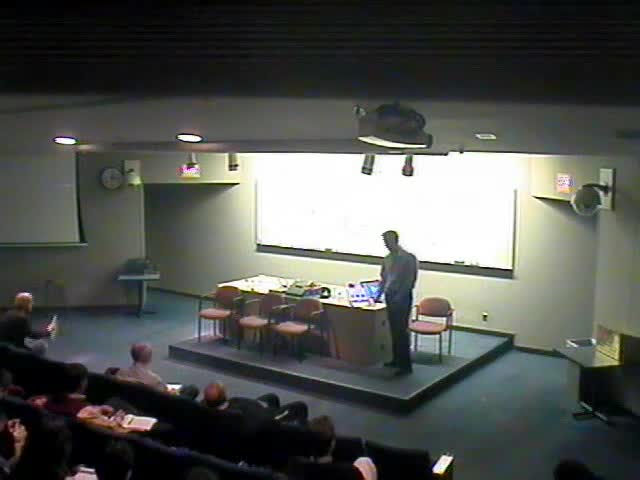Active Learning vs. Compressed Sensing
Presenter
December 8, 2005
Keywords:
- Sampling process, adaptive
MSC:
- 68T05
Abstract
Adaptive sampling, also called ``Active Learning'', uses information
gleaned from previous measurements (e.g., feedback) to guide and focus
the sampling process. Theoretical and experimental results have shown
that adaptive sampling can dramatically outperform conventional
non-adaptive sampling schemes. I will review some of the most
encouraging theoretical results to date, and focus on new results
regarding the capabilities of adaptive sampling methods for learning
piecewise smooth functions. I will also contrast adaptive sampling
with a new approach known as compressive sampling. Compressive
sampling, or ``Compressed Sensing'', has generated a tremendous amount
of excitement in the signal processing community and is seen as a
strong competitor of adaptive procedures. Compressive sampling
involves taking a relatively small number of non-traditional samples
in the form of non-adaptive randomized projections that are capable of
capturing the most salient information in a signal. I will compare
adaptive and compressive sampling in noisy conditions, and show that
in certain interesting cases both schemes are near-optimal. This
result is remarkable since it is the first evidence of cases in which
compressive sampling, which is non-adaptive, cannot be significantly
outperformed by adaptive procedures, even in presence of noise.
This is joint work with Rui Castro and Jarvis Haupt.
